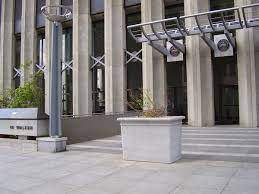Planning & Development
Planning Commission
Commission Meetings
Planning Commission meetings are held in-person in the City Hall Annex Council Chamber, 900 Bagby Street, Public Level, Houston Texas. Meetings are also broadcasted on the HTV Houston municipal channel and streamed on the City’s HTV website.
The meeting agenda and details will be posted on this page 3 business days in advance of each meeting.
Houston Planning Commission (PC)
AGENDA
Thursday, December 18, 2025, at 2:30 p.m.
City Hall Annex, 900 Bagby St. Public Level, Houston, TX
- Planning Commission Meeting Agenda Documents (PlatTracker)
- Agenda Draft Outline (.pdf published 12.12.2025)
Public Comments and Exhibits
The public may email questions and comments on the Agenda items to speakercomments.pc@houstontx.gov or call the Planning Department Wednesday before the Planning Commission meeting. Individual written comments are limited to 3 pages (8.5” x11”) of written or graphic material. The font size may be no smaller than 10 points. All comments provided before this deadline are made part of the public meeting record. If you have materials or graphic information for the Planning Commission to consider, submit it via email listed above 24 hours in advance of the scheduled meeting for it to be included in the final agenda packet.
Speaker Sign Up
The public may address the Planning Commission on agenda items. Anyone attending the meeting to speak before the Commission must sign up on a designated form located at the entrance to the Council Chamber on the meeting day.
Speakers are normally called in the order of sign up. See current agenda for speaker guidelines.
About the Commission
The Planning Commission, a 26-member board appointed by the Mayor and confirmed by City Council includes citizens, elected officials and the Director of Planning and Development. The Commission reviews and approves subdivision and development plats. The Commission also studies and makes recommendations to City Council on development issues in Houston.
Approval by Planning Commission is often the first step required in the development process. The Commission meets every other Thursday at 2:30 p.m. as posted. The agenda is posted three days in advance on the Department’s web site at www.HoustonPlatTracker.org. Items on the agenda posted as consent are typically considered all in one grouping. Items considered separately include replats requiring a public hearing and variances.
Members of the public can sign up to speak on any agenda item at the meeting. Speakers are usually allowed two minutes.
Commission Members
Lisa Clark, Chair |
Beatrice Naranjo |
Alternate Members |
Ex-Officio Members |
Hugo Sanchez |
Carol Lewis, Ph.D. |
Platting
A plat provides for the subdivision of land that can be legally defined (i.e. Lot 29, block 19 of the Happy Trails subdivision). Subdivision plats are required to show how land will be subdivided. The plat must reflect adequate streets and right-of-way for the project. The plat is checked to assure it abides by all development rules as established by Chapter 42, the City’s land development ordinance. By law, the Commission is required to approve plats that meet the requirements of Chapter 42.
Undeveloped land must be platted before development occurs. If land is platted, it can be replatted to further subdivide the existing subdivision plat or change the use of the property (i.e. from single-family to multi-family). Typically, a replat will make changes to the layout of lots, reserves, building setback lines and easements.
Plats must be considered and either approved or disapproved within 30 days or state law mandates that the plat is automatically approved if no action is taken. Plats can be deferred twice but action must be taken within the 30 days. Residents who were notified of a public hearing or variance will not receive a second notice if the item is deferred at Planning Commission. The item will automatically come up at the next Planning Commission meeting.
The Commission’s authority on platting does not extend to land use and therefore cannot disapprove a plat because of the intended use of the property. Other issues applicable to land development such as adequate water, sewer and drainage are handled by other agencies and are not part of the Commission’s authority regarding plat approval.
A plat must be prepared by a licensed surveyor, land planner and/or engineer and a licensed surveyor or engineer must sign the plat. If the property is located within Fort Bend County, a licensed engineer must sign the plat in addition to a licensed surveyor.
Replat Requiring a Public Hearing
A public hearing for a replat is required conditions existed within the original plat boundary. Public hearings are held before Planning Commission during the meeting. Residents within 500 feet of the property replat and within the original subdivision boundary will be mailed letters of notification and a sign will be posted announcing the public hearing date. If there are no variances requested, Planning Commission must approve the replat if it meets all the rules according to Chapter 42 and does not violate state law. If the replat violates deed restrictions, the Planning Commission must disapprove the plat.
Variances
Planning Commission does have discretionary authority if a plat requires a variance or special exception. Residents in the city limits that are within 500 feet of the proposed development will be notified of variances and have a chance to offer input on how the variance will affect their neighborhood or property. A variance is a deviation from the strict compliance of the rules and regulations of Chapter 42. The applicant must document a reasonable hardship for the variance. This usually means that applying the rules of Chapter 42 would make the land difficult to develop without the variance or that the rules applied to the project are contrary to sound public policy.
2017 PC Training - Platting and Permitting
Planning Commission Meeting Minutes
2021 Planning Commission Meeting Minutes |
|||
2020 Planning Commission Meeting Minutes |
|||
2019 Planning Commission Meeting Minutes |
|||
2018 Planning Commission Meeting Minutes |
|||
2017 Planning Commission Meeting Minutes |
|||
2016 Planning Commission Meeting Minutes |
|||
2015 Planning Commission Meeting Minutes |
|||
2014 Planning Commission Meeting Minutes |
|||
2013 Planning Commission Meeting Minutes |
|||
2012 Planning Commission Meeting Minutes |
|||
2011 Planning Commission Meeting Minutes |
|||
2010 Planning Commission Meeting Minutes |
|||
2009 Planning Commission Meeting Minutes |
|||
2008 Planning Commission Meeting Minutes |
|||
2007 Planning Commission Meeting Minutes |
|||
2006 Planning Commission Meeting Minutes |
|||





